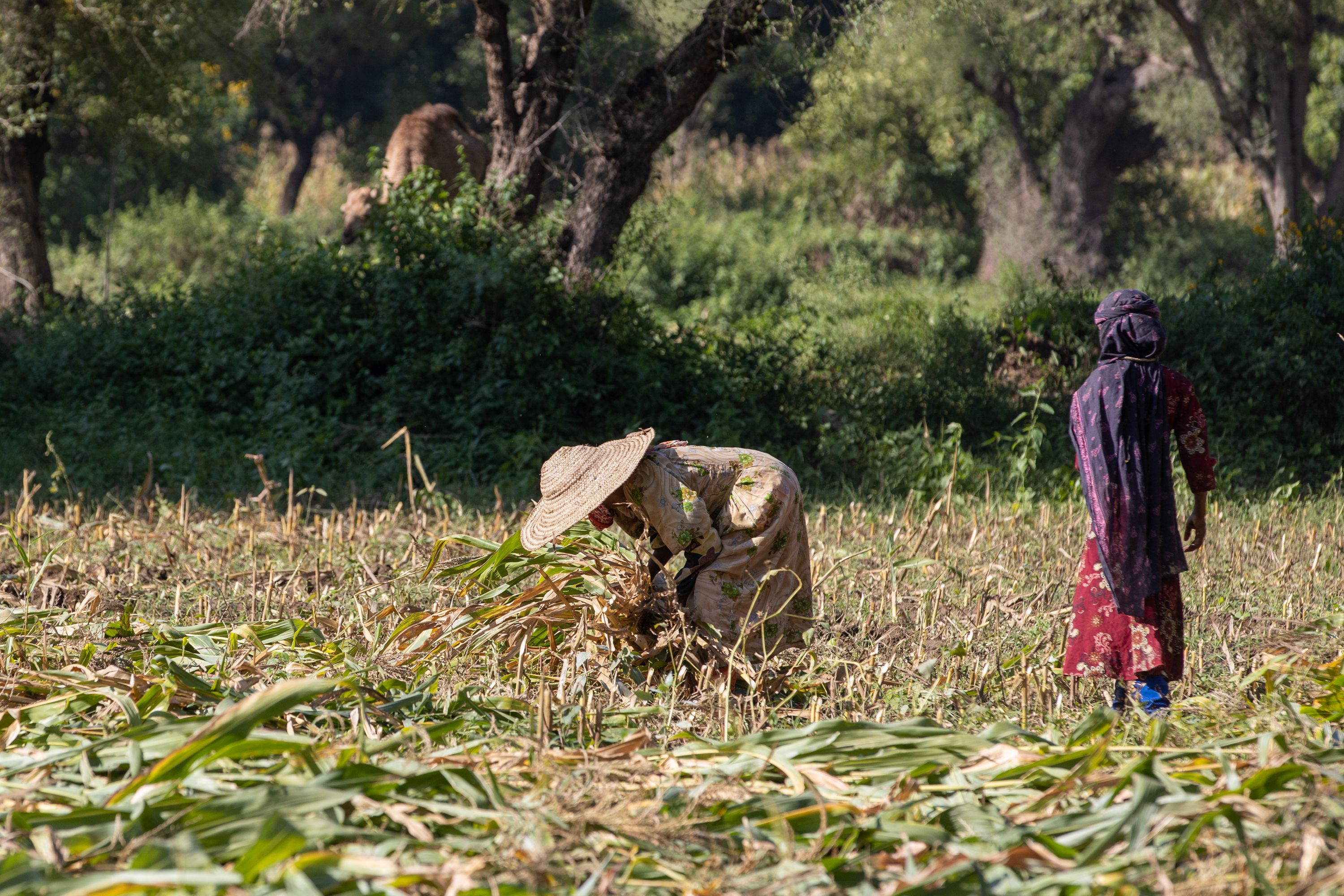In the picturesque countryside of Yemen, days blend into one another with familiar rituals and recurring tasks that define the lives of its inhabitants.
Here, rural women are often described as both "women and men" due to their dual roles in managing needs inside and outside the home. These resilient women devote most of their days to gruelling agricultural work that never ceases, persisting throughout the year, only ending when they are no longer physically able or pass away.
Despite women's immense contributions, men are still regarded as the primary decision-makers within the family and the driving force behind any success. Even when women contribute to the family's income, the men receive credit, as they maintain control over the rural social system in Raymah.
A Day in the Life of Amna
Amna Al-Raymi is a fifty-year-old mother of four daughters and a son, who are all married and live far away from Al-Jawra, the village where she lives with her husband.
Amna's journey begins at sunrise each day, as she tends to the livestock, milks the cows, and prepares breakfast using rudimentary methods. Then, with her sheep in tow, she heads to the farm to labour away on tasks that shift with the seasons.
Only death or incapacity
will release me.
Her husband assists with tasks like ploughing and building field walls, but Amna bears the brunt of the work.
To lighten the load, the village women work together while singing songs of encouragement as they toil away. After a long day in the fields, Amna returns home to prepare meals, tend to the livestock, and join her husband in the tannery. She admits she is forced to sell part of her ghee and raise cows and goats to cover their living expenses.
Even after a day filled with backbreaking work, Amna dedicates her evenings to preparing dinner, cleaning the house, and caring for her husband. Having worked since the tender age of seven, she knows no other life. "I was tasked by my mother to help her, starting with simple household chores, then gradually moving on to more difficult tasks such as taking care of the sheep, fetching water, and eventually farming," shares Amina. "I was married off at the young age of 16, already well-versed in all these responsibilities, and will continue to carry them throughout my life."
Risk is the only wage
Amna's arduous daily journey highlights Raymah's women's devotion to securing the needs of their families. These tireless women undertake countless unpaid tasks, from farming and livestock breeding to fetching water and firewood, all while fulfilling their roles as mothers and homemakers.
Their lives are fraught
with danger.
These tireless women undertake countless unpaid tasks, from farming and livestock breeding to fetching water and firewood, all while fulfilling their roles as mothers and homemakers.
Amna sombrely recalls the most recent victims in her community: a woman and a child who tragically drowned in a pond. She stresses that this is not an isolated incident, with multiple women and children having met similar fates.
In rural Yemen, the dream of gender equality and female empowerment remains a distant aspiration
Women's roles are confined to the home and farm, and it is considered disgraceful for them to break these boundaries.

When women take on additional tasks, it is usually out of necessity and within limited spheres. Some travel between villages, selling local products and opening small shops within their homes.
It is crucial to raise awareness.
The Geneva Declaration on Rural Women mandates that governments prioritize the improvement of rural women's status by strengthening national mechanisms and fostering collaboration between government agencies and NGOs focused on rural development.
Above all, it is crucial to raise awareness among rural women about their rights, acknowledge their role in society and amplify their voices in decision-making processes. With these changes, the extraordinary women of rural Yemen, like Amna, can finally attain the recognition and support they rightly deserve.
Women farmers and shepherds during harvest in the outskirts of Taiz. © Albaraa Mansoor | Arabia Felix Magazine
